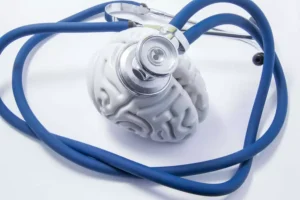Kudzu did what it was supposed to do – it curbed my drinking noticeably. But as soon as the capsules ran out, I concluded that it hadn’t totally “cured” my problem and that I would eventually find something better. Because my drinking levels were so stupendously high in the first place, kudzu did not turn me into a moderate drinker by any stretch of the imagination.
Kudzu root: traditional uses and potential medicinal benefits in diabetes and cardiovascular diseases
- You may be wondering how people use kudzu root and what to know when considering whether to give it a try.
- Because my drinking levels were so stupendously high in the first place, kudzu did not turn me into a moderate drinker by any stretch of the imagination.
- From improving heart health and regulating blood sugar levels to reducing inflammation and menopausal symptoms, kudzu may be a useful addition to a healthy lifestyle.
- We developed a standardized kudzu extract that preserved the ratio of the major isoflavones found in the raw root, except that the concentration of isoflavones was increased to 25%.
- As drinking behavior was measured using a wrist actigraphy device, we were able to monitor alcohol consumption continuously, 24 hours a day and seven days a week.
- Digestive AidKudzu root’s anti-inflammatory effects help settle digestive issues like upset stomach, diarrhea, constipation and inflammatory bowel disease.
- In addition to the involvement of nervous system regulation, the changes in cognition caused by chronic alcohol consumption cannot be ignored.
Kudzu root contains phytoestrogens, which are plant-based compounds that can mimic the effects of estrogen in the body. This property has led to exploring kudzu for menopausal symptoms, as it may help alleviate hot flashes and mood swings. But, we’ll preface this by saying that unlike other super common herbal kudzu root alcohol supplements, kudzu hasn’t been widely tested—although preliminary studies do look promising. And, it does come with a list of possible side effects, Beckerman says, including itchiness, upset stomach, dizziness, nausea, headache, fever, and even the possibility of red blood cells breaking inside blood vessels.
1 Participants
- Lukas and Lee hold a patent for kudzu extract to treat alcohol abuse and dependence.
- Participants were instructed to report when they consumed each drink, which was defined as a 12 oz can of beer, 5 oz glass of wine or 1.5 oz distilled spirits.
- Anecdotal sources also note that kudzu root may lower blood sugar too much or slow down blood clotting.
- The present study did not include a treatment condition to specifically analyze the effects of kudzu alone in the absence of any challenge drink.
- It contains several active isoflavones, which are natural plant chemicals with antioxidant effects.
The optimal dose for alcohol dependence has yet to be established and may be lower than the target dose of 300 mg per day tested in previous research143,144. In addition to BZs, only three medications (oral naltrexone, acamprosate, and disulfiram) as well as extended-release injectable naltrexone are currently approved by the FDA for treating alcohol dependence6. Kudzu’s estrogen-like compounds could potentially interact with hormonal contraceptives, reducing their effectiveness. It is essential for individuals taking birth control pills to consult with a healthcare professional before using kudzu. One of the most well-known uses of kudzu root is reducing alcohol dependence. Research suggests that compounds found in kudzu may help control alcohol cravings.
A Standardized Kudzu Extract (NPI- Reduces Alcohol Consumption in Non Treatment-Seeking Male Heavy Drinkers
Fifty-one percent of adults over the age of 18 and 56% of those age 18–44, are current regular drinkers (Schiller et al., 2012). Thirty percent of current drinkers report drinking excessively (Naimi et al., 2003) and 92% of U.S. adults who drink excessively report binge drinking in the past 30 days (Town et al., 2006). Current use was defined as at least one drink in the past 30 days while binge use includes drinking five or more drinks per day.
Partner with us to treat your patient’s cancer.
6 Alcohol Consumption—Follow-up Phase
- And, it does come with a list of possible side effects, Beckerman says, including itchiness, upset stomach, dizziness, nausea, headache, fever, and even the possibility of red blood cells breaking inside blood vessels.
- He worked for many years in mental health and substance abuse facilities in Florida, as well as in home health (medical and psychiatric), and took care of people with medical and addictions problems at The Johns Hopkins Hospital in Baltimore.
- The development of an alcohol-metabolizing enzyme stimulant is one of the strategies for developing an alcoholism remedy.
- For professional medical information on natural medicines, see Natural Medicines Comprehensive Database Professional Version.
- The isoflavone tectorigenin demonstrated antiproliferative activity via cell differentiation and reduced expression of Bcl-2, an antiapoptotic protein (1).





